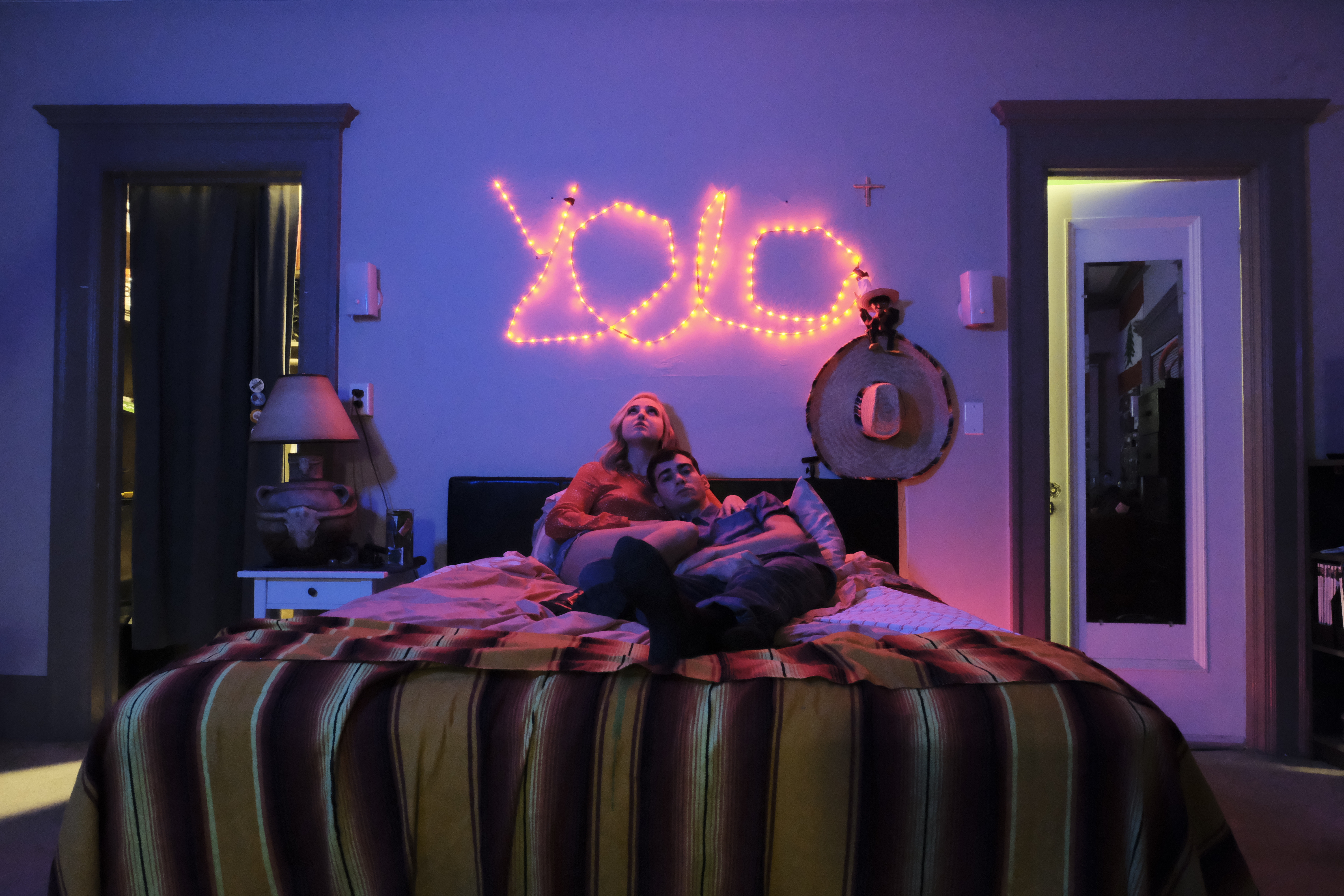‘Hook Up 2.0’ by Dana Nachman
Where will the #MeToo movement lead us, in our dating lives? And, as with the AIDS epidemic in the 80s and the global warming threat we’re experiencing in the 21st century, will the youngest generations need to reinvent a way to survive in the aftermaths of disasters which were not created by them and for which they are not to be held responsible?
So, if you ever found yourself pondering any of those questions above, you may step into ‘Hook Up 2.0’ — screening at the upcoming Tribeca Film Festival in NYC — with the wrong frame of mind. That’s because Dana Nachman’s short film is funny, charming and approaches its subject with the necessary lightness of an entertaining work of art.
In brief, the film tells the story of a tryst between a boy and a girl, post #MeToo and in the internet age. The boy wants the girl to sign an agreement so he can “manhandle” her and the girl in turn puts the boy through an App process to make sure he’s suitable hook up material. It’s modern dating — the way it could turn out after all.
Despite the funny set up, there is a serious undertone present in Nachman’s film, a commentary on the discord present when a simple act of human nature turns into a sanitized contract between two people. Is this who we have become?
To find your own answers, as well as ask probably a hundred more, you’ll have to watch ‘Hook Up 2.0’. And in the meanwhile, you can read an exclusive interview with the filmmaker herself here.
‘That Which Does Not Kill’ by Alexe Poukine

The original French title for Alexe Poukine’s film ‘That Which Does Not Kill’ is ‘Sans Frapper’ which translates into English as “without knocking.” It’s equally as haunting as the title given for the film to English speaking audiences, but for women watching Poukine’s work perhaps even more so. How often has the experience of sex been for us like the opening of a door by a stranger without a knock of announcement first? And it’s not until after the fact that we realize the violence of this act.
Poukine’s film was recently screened at the Visions du Réel International Film Festival in Nyon, Switzerland and the film truly busts any and all expectations I could get from its synopsis. It is inspired by “Ada” — a real-life woman who approached the filmmaker after a screening in 2013. Ada’s experience, a dinner date at a man’s apartment turned into something she never felt she consented to, thus becomes the starting point for the filmmaker to confront “the discrepancy between her preconceptions about rape and the acknowledged fact that many of her close friends have endured a similar experience,” as Emilie Bujès, artistic director of Visions du Réel describes in her blurb about the film.
‘That Which Does Not Kill’ is a strange, haunting and unconventional piece of filmmaking. The leading woman’s role is played by a few actresses, with different features, ethnicities and throughout varying stages of their life. At least one of those women is bound to remind the viewer of herself and that’s where the brilliance of Poukine’s work lies.
Because in order to truly understand what we have been through, we need to understand where those experiences are leading us. And how we can turn that into a better way to be ourselves in the process…
Will cinema help us through a crisis? Probably not, but viewing a work of art on the big screen which deals with our traumas and issues can give us a whole new outlook on these matters and another viewpoint is always a good thing.


